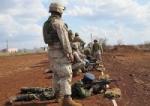Step on the Gas By Kenneth Rogoff
...insist that the U.S. Congress pass a huge increase in gas taxes. To be more precise, the United States should implement steep carbon taxes that hit coal, heating oil, and natural gas. The tax should be enough to raise the price of gasoline by at least $2 a gallon.
Unrepentant Power By Jorge I. Domínguez
Re-read the opening lines of the U.S. Declaration of Independence. There, the Founders pledged the nation to bear “a decent respect to the opinions of mankind.” They vowed to resist the temptation to insist that American views should always prevail. They affirmed that the very idea of liberty intrinsically presumes that we will not all follow the same path.
Steady as She Goes By Fouad Ajami
...the pretense of intellectuals and pundits who shelter under American power while bemoaning the sins of the country that provides their protection. When and if a postAmerican world arrives, it will not be pretty or merciful. If we be Rome, darkness will follow the American imperium.
Nothing dramatically new needs to be done by the next American...














Bookmarks